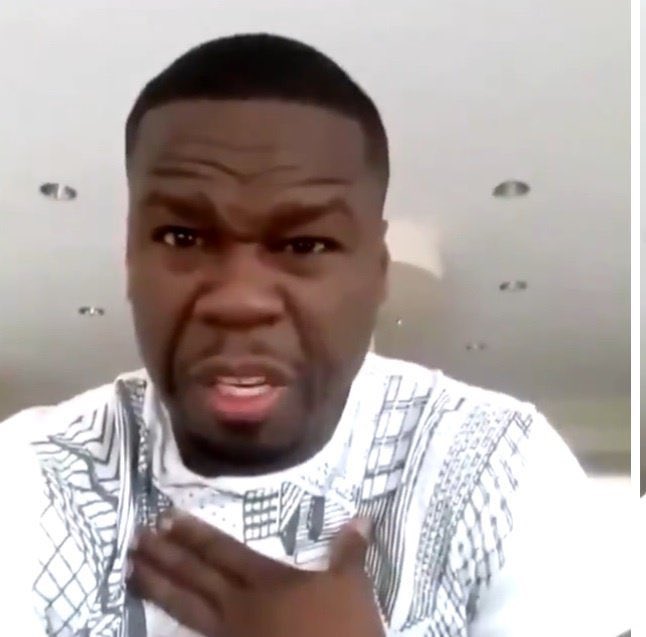Why He Say Fuck Me For: Unraveling The Surprising Reasons Behind Strong Language
Sometimes, you hear a phrase, perhaps even one like "why he say fuck me for," and it just stops you in your tracks. It's jarring, isn't it? Such strong words, really, can make you wonder what's going on, and perhaps more importantly, what's behind them. It’s a very human reaction to try and figure out the meaning, or the push, that makes someone choose such intense language. As of June 10, 2024, the way we use words, and the power they carry, is something we're always trying to understand, and this kind of question, in a way, brings that right to the forefront.
Language, you see, is a wonderfully intricate thing. It's not just about simple definitions from a dictionary; it’s about feelings, about history, and about the moment something is said. You might find yourself thinking, "I don't know why, but it seems to me that bob would sound a bit strange if he said, why is it that you have to get going? in that situation." This just shows how much context truly matters, and how our words often carry weight beyond their bare meaning, so it's a bit of a puzzle sometimes, isn't it?
We often seek something more concrete, indicating the true reason behind a word's usage. We want to grasp the full picture. This exploration isn't about condoning harsh words, not at all, but rather about pulling back the curtain on why people choose the words they do, especially when those words are very, very powerful. It’s about trying to make sense of the many, many layers that make up human communication, and how we can, perhaps, navigate them a little better.
- Lara Rose Onlyfans The Rise Of A Digital Phenomenon.linkmaz
- Divaflawless Xxx.linkmaz
- Subhashree Mms Links.linkmaz
- Necati Arabac305 A Rising Star In The Turkish Music Scene.linkmaz
- Exploring The World Of Diva Flawless Onlyfans Nude Videos And Beyond.linkmaz
Table of Contents
- The Power of Words: Beyond the Obvious Meaning
- When Language Gets Intense: Exploring the 'Why'
- The Nuances of Communication: What We Really Mean
- Seeking Clarity: Asking the Right Questions
- Frequently Asked Questions
The Power of Words: Beyond the Obvious Meaning
Words, really, are far more than just sounds or symbols. They carry feelings, memories, and a whole lot of unspoken messages. You might think a word means just one thing, but then you hear it in a new way, and it's like a whole different picture emerges. This is why, in a way, we often find ourselves searching for something more concrete, indicating the full story behind a word, especially when its common usage doesn't quite fit a simple, plain definition. It's not always as straightforward as it seems, is it?
Meaning Beyond Simple Definition
Consider how words gain their common usage. It's not always a clear, logical path. Sometimes, a word just sort of, well, sticks, even if its original meaning doesn't quite explain why it became popular for something else. This appears to be speculative, and doesn't necessarily explain why this definition fell into common usage to indicate a cigarette, for example. It's a bit of a mystery, how language evolves and how new meanings attach themselves to old words, almost like a secret code.
Words can be like containers for shared experiences, for feelings, or for a sense of belonging. A phrase that might sound harsh to one person could, in another setting, be a sign of closeness or even a kind of inside joke. It truly depends on who is speaking, who is listening, and what history they share. So, you see, the meaning is very rarely just on the surface; it's usually woven into the fabric of human connection, or the lack of it, really.
- Nicoleponyxo Nude.linkmaz
- Supreme Values Mm2.linkmaz
- Uncover The World Of Hd Movies With Hdhub4u Tv A Cinematic Haven.linkmaz
- Cottontailva Of Leaks.linkmaz
- Exploring The Inspiring Journey Of Brattygbaby From Passionate Creator To Global Influencer.linkmaz
Why We Ask 'Why' About Words
The word "why" itself is a very old and powerful question word. It can be compared to an old Latin form "qui," an ablative form, meaning how. Today, "why" is used as a question word to ask the reason or purpose of something. When someone uses strong language, our immediate, almost natural, reaction is to ask "why?" We want to understand the motivation, the feeling, or the circumstance that led to those particular words being chosen. It's a fundamental human need, really, to seek understanding.
This desire to understand "why" isn't about judging, or about condoning. It's about trying to piece together the puzzle of communication. We want to know the ground, the very foundation, of what's being said. It's a way of trying to make sense of the world around us, especially when words hit us in an unexpected or forceful way. So, that's a very good question, why we always want to know the reasons, isn't it?
When Language Gets Intense: Exploring the 'Why'
Sometimes, words come out with a real punch. They might be surprising, or even a little shocking. When someone uses intense language, it's often a sign that something significant is happening, something that needs to be expressed with force. It's not always about anger; sometimes it's about deep frustration, or maybe even a desperate need to be heard. Understanding this can help us, in a way, see beyond the immediate impact of the words themselves.
Emotion and Emphasis
One big reason people use strong words is to convey intense emotion. When feelings run high, whether it's anger, frustration, excitement, or even pain, our language often reflects that intensity. A mild word just won't cut it when you're feeling something very, very deeply. Strong words can act like an exclamation point, adding emphasis and making sure the message truly lands. It's almost like shouting without actually raising your voice, in some respects.
People might also use strong words to emphasize a point they feel is critically important. They want to make sure you truly grasp the weight of what they're saying. It's a way of signaling, "Listen closely, because this really matters." This isn't always a bad thing; sometimes, it's the only way to get through, especially when someone feels unheard. So, it's a bit like turning up the volume on a message, you know?
Cultural and Social Context
The way people talk, and the words they choose, are also deeply shaped by their culture and the groups they belong to. What might be considered extremely offensive in one setting could be fairly common, or even a term of endearment, in another. Americans have a knack for simplifying things, and there will always be exceptions, especially where language is concerned. This means that a phrase that sounds harsh to you might be part of a particular group's everyday talk, almost without thinking.
There are social dynamics at play too. Sometimes, strong language is used to establish dominance, to express defiance, or to fit in with a particular group. It's a way of signaling identity, or showing that you're part of a certain crowd. So, the "why" behind the words can be quite layered, involving not just personal feelings but also broader social patterns, and that's really something to consider.
Historical Baggage and Word Choice
Some words carry a heavy history, and understanding that history can shed light on why they are so impactful. For example, I understand that the word "spook" is a racial slur that rose in usage during WWII. I also know Germans called Black gunners "Spookwaffe." What I don't understand is why. This desire to understand the "why" behind even harmful words is important. It helps us see how language can be used to demean, to categorize, or to express prejudice.
Knowing the background of a word, its origins, and how it has been used over time, gives us a much fuller picture. It's not about excusing harmful language, but about recognizing the historical and social forces that shape its use. This knowledge, really, helps us to be more thoughtful about the words we choose, and to understand the impact they can have on others. Learn more about language history on our site, and link to this page about word origins.
The Nuances of Communication: What We Really Mean
Communication is rarely just about the words themselves. It's a whole dance of subtle cues, unspoken understandings, and the specific situation we find ourselves in. What someone says, and what they actually mean, can sometimes be two quite different things. It's like trying to read between the lines, isn't it?
Context is Everything
The setting, the relationship between the people talking, and what just happened can completely change how a phrase is understood. For instance, if someone said, "I don't know why, but it seems to me that bob would sound a bit strange if he said, why is it that you have to get going? in that situation," it highlights how crucial context is. The exact same words can feel completely different depending on where and when they are spoken. It's almost like a word has many outfits, and it changes them depending on the party it's going to, you know?
Even formal guidelines exist for how language should be used, like Newspaper guidelines for formatting of 'covid.' This shows that even in very structured environments, there's a recognition that words need to be handled carefully, and that their impact is tied to the situation. So, what seems like a simple utterance is actually part of a much bigger picture, and that's really fascinating.
Non-Verbal Cues and Tone
Beyond the actual words, how something is said matters immensely. The tone of voice, facial expressions, body language – these non-verbal cues can either soften or intensify the message. A strong phrase delivered with a wink and a smile might mean something entirely different than the same phrase said with a frown and a clenched jaw. It's like a secret language happening alongside the spoken words, and it's something we often pick up on without even realizing it.
Sometimes, the "why" behind strong language isn't just in the words, but in the entire package of how the message is delivered. You might find that the speaker's frustration, or their deep feeling, is conveyed more by their sigh or their posture than by the specific words they choose. It's a subtle art, this communication thing, and we're always, always learning about it, aren't we?
Seeking Clarity: Asking the Right Questions
When faced with language that feels intense or confusing, it's natural to want to get to the bottom of it. We often look for something more concrete, indicating the true meaning or intention. This desire for clarity is a good thing; it helps us avoid misunderstandings and build better connections with others. It's about peeling back the layers, almost like an onion, to get to the core of what's being communicated.
Peeling Back the Layers of Meaning
Instead of reacting immediately to the surface of strong words, it can be helpful to pause and consider the possible layers underneath. What might the person be feeling? What context am I missing? Are they trying to emphasize something? This approach helps us move past the initial shock or discomfort and towards a deeper understanding. It's a way of saying, "I'm looking for something more concrete indicating," not just what was said, but why it was said in that particular way. You know, it's about being curious rather than quick to judge.
This kind of thoughtful inquiry is especially useful when words seem out of place. For example, 14 policemen and women are called police officers regardless of their rank. In other ranked systems, like the military or firefighting, a military officer or a fire officer would be an officer of a certain rank. This shows how certain titles or words are used in very specific ways, and understanding that specificity helps us avoid confusion. So, it's really about knowing the rules of the game, more or less.
The Value of Thoughtful Inquiry
Asking "why" in a thoughtful, open way can open up pathways to better communication. It's a very good question, after all, to wonder about the reasons behind things. When someone uses language that is surprising, or even a bit jarring, a gentle inquiry can sometimes reveal a lot. It might uncover a hidden frustration, an important point they're trying to make, or simply a difference in how they typically express themselves compared to you. It's about being willing to explore, to listen, and to truly hear what's being conveyed, even when the words themselves are tough. We've used all of the other ones on this approach, and it truly helps, you know? You can learn more about effective communication strategies at Psychology Today.
Frequently Asked Questions
Why do people use strong language?
People often use strong language to express intense emotions like frustration, anger, or excitement. It can also be a way to add emphasis to a point they feel is very important, or to fit in with a particular social group. Sometimes, it's simply a habit or a part of their everyday way of speaking, almost without thinking, you know?
How does context change word meaning?
Context changes word meaning immensely because it provides the background for understanding. The same words can mean different things depending on who is speaking, who is listening, the situation they are in, and even their tone of voice. It's like a word has many different outfits, and it wears the right one for the occasion, so it's really quite important.
Can words lose their power?
Yes, words can definitely lose some of their original power over time, or gain new power. As language evolves, some words that were once very strong might become more common and less impactful, or vice versa. This question is related, but is not a duplicate, of why do some words have "x" in them, as it speaks to the changing nature of language itself. It's a bit like a well-worn path; the more it's used, the less distinct it becomes, you know?
- Ari Kytsya Onlyfans Leak A Comprehensive Analysis And Facts You Need To Know.linkmaz
- Xxxxxx Is Equal To 2 X A Simple Guide To Decoding This Equation.linkmaz
- Auctions Mt 19.linkmaz
- Bollyflixcom Your Ultimate Destination For Bollywood Entertainment.linkmaz
- Uiiu Cinema.linkmaz

reaction memes @VideoReacts on Twitter: "50 Cent why did he say fuck me

The Memes Archive on Twitter: "RT @TheMemesArchive: i’m like what he

for sale, baby shoes, never worn... on Twitter: "Jamaican niggas in